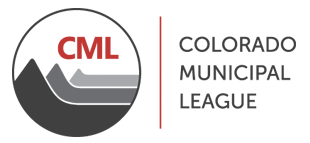Responding to CGIA notices of claim, or not?
In This Section
CML Newsletter
July 22, 2025
By Rachel Bender, CML senior associate counsel
Under the Colorado Governmental Immunity Act (CGIA), a person claiming to have suffered an injury caused by a public entity or employee must provide a written notice of claim to the proper entity or person within 182 days of discovering the injury. C.R.S. § 24-10-109 sets forth the information that must be included in the notice. If the injured person fails to send the notice to the correct entity within the requisite time frame, their claim is barred. A case recently accepted by the Colorado Supreme Court — Mostellar v. City of Colorado Springs — will examine whether this holds true when notice is sent to the wrong entity and that entity does not notify the claimant that another public entity is potentially responsible for the alleged injury.
Current legal framework
Under current law, the 182-day time frame for providing a notice of claim runs from the date an individual discovers their injury, which is the date the person knew or should have known of their injury and its cause. While an injured person is only required to “substantially comply” with the statutory requirements for the information that must be included in a notice of claim, the 182-date time frame for sending the written notice is a strict deadline. Colorado courts have routinely held that an untimely notice of claim is an absolute bar to the lawsuit.
Mostellar v. City of Colorado Springs
In 2021, Mostellar allegedly tripped and fell on a bus stop sign remnant in Manitou Springs. Mostellar’s attorney timely provided a notice of claim to Manitou Springs. After a year and a half, Mostellar hadn’t filed suit when Manitou Springs informed Mostellar’s attorney that Colorado Springs was responsible for the sign under an Intergovernmental Agreement (IGA). Mostellar’s attorney provided a written notice of claim to Colorado Springs approximately one month thereafter. Mostellar then filed suit against the City of Colorado Springs.
Colorado Springs moved to dismiss the case on grounds that Mostellar did not timely submit a notice of claim to Colorado Springs. The Court of Appeals agreed with the city, but the Colorado Supreme Court wants to review whether the 182-day time frame should run from when Manitou Springs notified Mostellar of the IGA and whether the CGIA should require strict compliance with the 182-day time frame when compliance is “impossible” based on one entity’s failure to inform the claimant of the potential liability of another public entity.
A potential sea change?
Strict compliance with the notice of claim deadline is a bedrock CGIA principle. Since a legislative change to the CGIA in the late 1980s, which was affirmed through case law in the early 1990s, “the notice period places a burden on the injured party to determine the cause of the injury, to ascertain whether a governmental entity or public employee is the cause, and to notify the governmental entity within [182] days from the time when the injury is discovered.” Trinity Broad. of Denver, Inc. v. City of Westminster, 848 P.2d 916, 927 (Colo. 1993). Claimants have “a duty of reasonable diligence to determine the basic and material facts underlying [their] claim.” Grossman v. City & Cnty. of Denver, 878 P.2d 125, 127 (Colo. App. 1994).
Notices of claim are more than just a box to check. They serve many purposes including allowing an entity to investigate and remedy any dangerous condition, preserve evidence, make fiscal arrangements for potential liability, and prepare a defense. They are easy to send and many attorneys overinclude public entities to avoid missing a potential defendant.
Moreover, public entities have no obligation to take any particular action in response to a notice of claim. Some entities take no action, some may investigate, and yet others may provide a response to a notice of claim. A single entity may even respond differently to different notices, which is their prerogative.
If the Supreme Court finds in favor of Mostellar, public entities may be sacked with new obligations upon receipt of a notice of claim, eroding the protections of the CGIA. Public entities may face some costly new duty to identify and provide a claimant with relevant information – a burden unheard of in private litigation. Currently, that obligation lies solely with the claimant and claimants already have avenues to collect that information (e.g., a request under the Colorado Open Records Act). Public entities may also have less certainty regarding the notice time frame, which will likely give rise to more litigation as well as untimely lawsuits, both of which hamper the purposes of the CGIA. Regardless of the outcome, municipalities should review how they respond to notices of claim and determine whether any changes are warranted.
This column is not intended and should not be taken as legal advice. Municipal officials are always encouraged to consult with their own attorneys.
